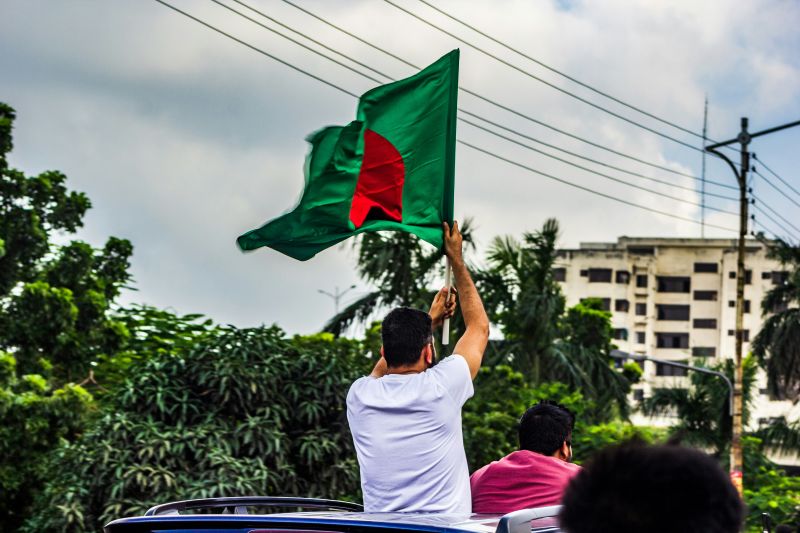
Dhaka: Islami Chhatra Shibir, the student wing of Bangladesh Jamaat-e-Islami, which was banned last year, has re-emerged on the country’s political stage after securing major victories in university polls.
On Saturday, the group’s candidates took control of the student union at Jahangirnagar University, days after winning the Dhaka University Central Students’ Union (DUCSU) elections on September 10. With both campuses under its influence, Shibir now controls two of Bangladesh’s most prominent universities — a symbolic comeback for an organisation once pushed to the margins.
“This is a responsibility, not a prize,” said Mazharul Islam, the newly elected general secretary from Shibir-backed Samonnito Shikkharthi Jote, in remarks to The Daily Star. “Our first task will be to end partisan practices that have disrupted students’ academic lives. We want a safe, education-friendly campus.”
Shafikur Rahman, Ameer of Jamaat-e-Islami Bangladesh, hailed the development, telling The Hindu: “Today a big responsibility has been placed on the students. We hope they will give the highest importance to preserving our trust.”
Ban and revival under interim government
In the first week of August 2024, the Awami League government banned Islami Chhatra Shibir under security laws, just days before Prime Minister Sheikh Hasina was toppled by mass protests. The ban was among the last acts of the Awami League before its collapse.
The interim administration led by Nobel laureate Muhammad Yunus, which assumed power on August 8, swiftly reversed the order, restoring Shibir’s legal status. The group’s electoral resurgence comes at a sensitive time, as Bangladesh heads toward a general election early next year — the first since Hasina’s downfall.
According to bdnews24, several political figures view Shibir’s electoral success as a warning sign, with possible implications for national polls. Others suggest the results may be part of a broader political strategy or “masterplan” as Islamist forces gain renewed ground in Bangladesh’s post-Hasina landscape.
Awami League sidelined amid unrest
Earlier this year, the Bangladesh Election Commission suspended the registration of the Awami League, barring the country’s longest-ruling party from contesting elections. On Saturday, the interim government went further, banning the party’s activities under the Anti-Terrorism Act pending trials of its leaders at the International Crimes Tribunal.
The announcement coincided with renewed street protests demanding a complete ban on the Awami League — a party credited with leading Bangladesh’s 1971 Liberation War but accused by opponents of authoritarianism in recent years.
July–August uprising and aftermath
The July–August 2024 uprising that forced Hasina’s exit left a deep scar on Bangladesh. According to the UN Office of the High Commissioner for Human Rights (OHCHR), nearly 1,400 people were killed in just 46 days, most shot by security forces. The report found that 12–13 percent of those killed were children, and thousands more were injured.
The OHCHR also cited reports of brutal crackdowns — including a teenager shot at point-blank range for throwing stones. Bangladesh Police, for their part, reported 44 officers killed in clashes between July 1 and August 15.
The upheaval has since redrawn the country’s political map. With the Awami League sidelined and Islamist groups regaining momentum, Bangladesh’s upcoming election promises to be one of its most consequential in decades.


